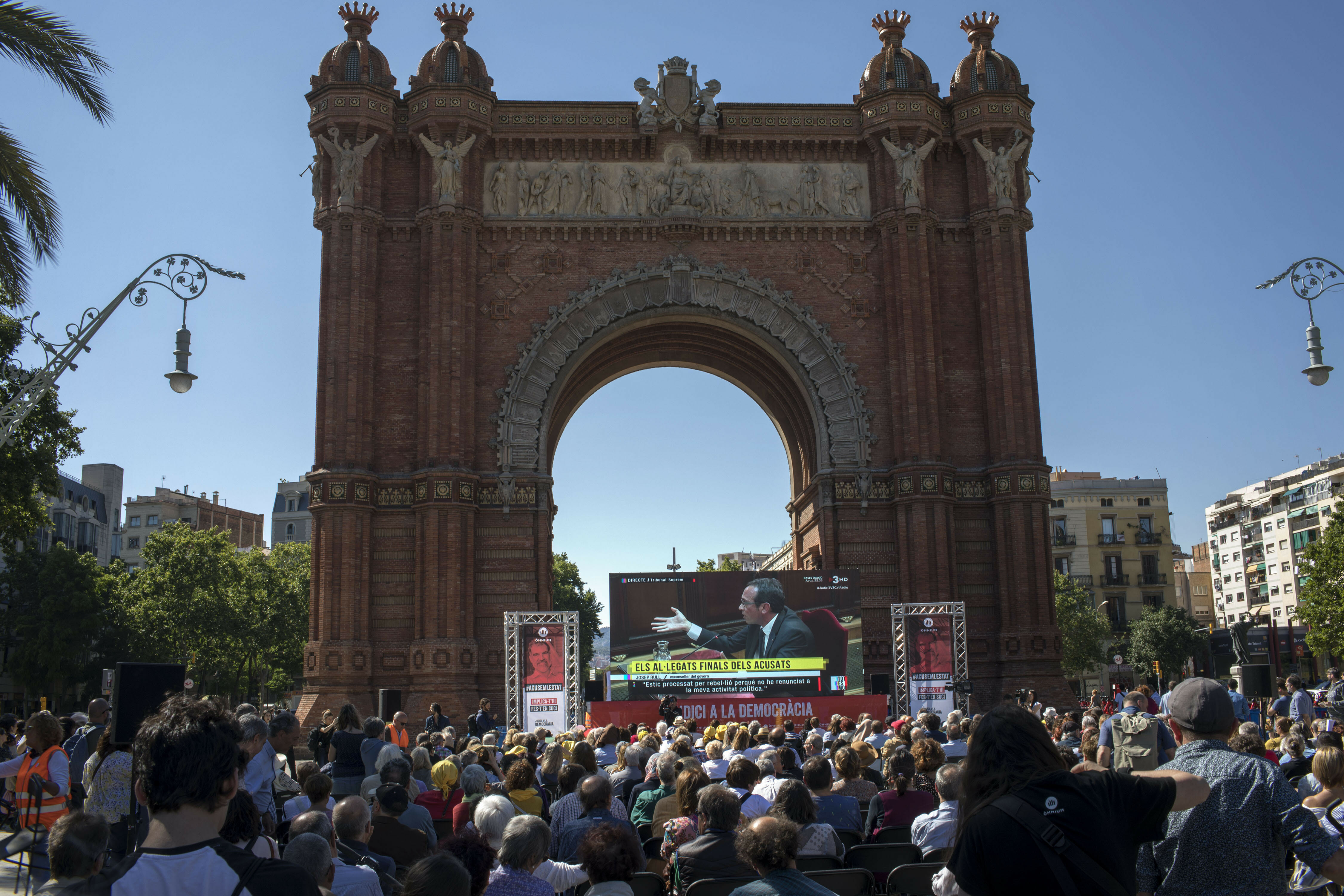
Catalan separatists defend actions at end of Spanish trial
MADRID (AP) — A rebellion and sedition trial resulting from a push to take the Catalonia region out of Spain wrapped up Wednesday with prosecuted leaders arguing they exercised their democratic rights by holding a banned independence referendum.
The dozen ex-officials and activists on trial, who hope to avoid prison sentences, told the Spanish Supreme Court in Madrid that long-running secession efforts in Catalonia were part of a political conflict with national authorities and didn’t belong in a courtroom.
“Casting a vote cannot be considered a crime,” former Catalan vice president Oriol Junqueras said in his final statement, adding that the 2017 secession bid for which he was charged had been non-violent.
“The best for everyone would be to place this issue back in the sphere of politics … which it never should have left,” Junqueras said as four months of hearings in the high-profile case drew to a close.
A decision in the case is expected in several months.
Catalonia’s independence push triggered Spain’s worst constitutional crisis in decades as the Spanish government dissolved Catalonia’s regional parliament, removed the region’s government from office and transferred their duties to Madrid.
The defendants have become a potent symbol for the Catalan independence movement, and the trial’s outcome could set the tone for Spanish politics for years to come.
State prosecutors are seeking a 25-year sentence for Junqueras for rebellion, which under Spanish law requires proving that violence was used to disrupt the country’s constitutional order.
Prosecutors accuse the defendants of trying to stage a coup. Most defense lawyers argued their clients were, at the most, guilty of disobedience, which could mean fines and a possible ban from holding public office.
The Constitutional Court outlawed the October 2017 ballot, which Junqueras and the other defendants played a part in organizing. It said Spain’s constitution doesn’t allow one of its regions to break away.
Other prominent secessionists in the trial are the former speaker of Catalonia’s regional parliament, Carme Forcadell, activist-turned-politician Jordi Sánchez and activist Jordi Cuixart.
Cuixart said the defendants are political prisoners.
“What we are seeing here is democracy on trial,” he said.
He urged Catalans to keep up their peaceful demonstrations. “We won’t stop protesting,” he said. “It’s the engine that moves society forward.”
The defendants’ pre-trial jailing for more than 18 months angered many. The court said they represented a flight risk because former Catalan regional president Carles Puigdemont and others fled from Spain and have successfully fought extradition.
Hundreds of people sat outside in the sun in Barcelona watching the proceedings live on a huge screen. Independence supporters were scheduled to hold protests across Catalonia later Wednesday, including one attended by leading Catalan politicians in a central Barcelona square.
“You don’t hold the solution to a problem which has dropped into your lap,” Sánchez told the court in an at times emotional speech as he sat on a chair facing the panel of judges.
“The legal system can’t solve a political problem, but you have a duty not to worsen the political crisis,” he said. “I wouldn’t like to be in your shoes.”
The Western Journal has not reviewed this Associated Press story prior to publication. Therefore, it may contain editorial bias or may in some other way not meet our normal editorial standards. It is provided to our readers as a service from The Western Journal.
Truth and Accuracy
We are committed to truth and accuracy in all of our journalism. Read our editorial standards.
Advertise with The Western Journal and reach millions of highly engaged readers, while supporting our work. Advertise Today.












